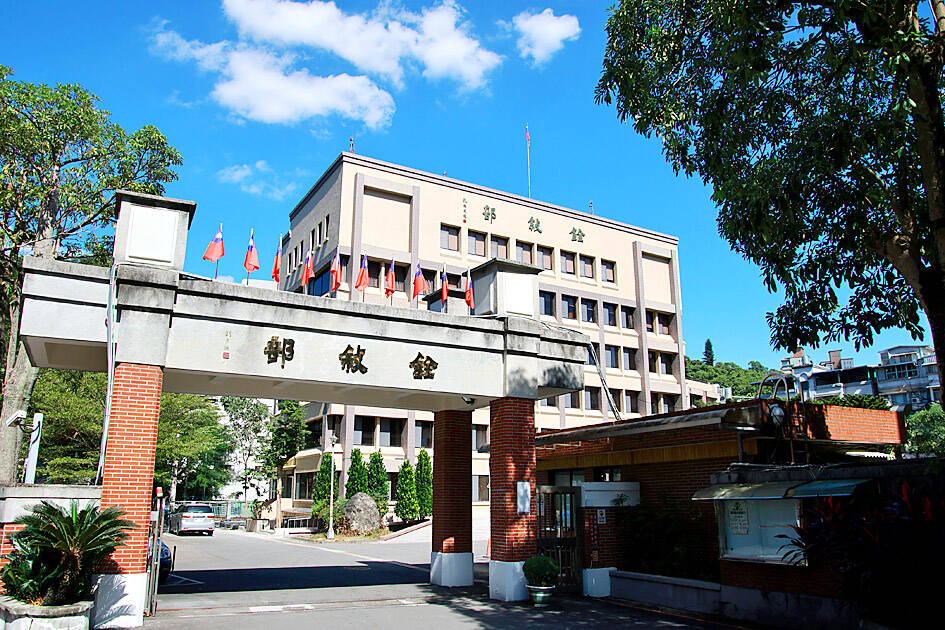Military personnel, civil servants and educators in Taiwan would be dismissed if they are found to hold any Chinese government-issued documents, the Mainland Affairs Council (MAC) said yesterday, following reports that civil servants would be required to sign pledges that they do not hold a Chinese ID.
The remarks came after the Ministry of Civil Service on Thursday last week issued notices to local governments requiring that civil servants sign a pledge that they do not have residency in China or possess a Chinese ID, including national identification, a residential certificate or passport.
It follows a similar directive issued by the Ministry of National Defense on Feb. 12.

Photo courtesy of the Ministry of Civil Service
The MAC issued a notice on Feb. 11 calling on the ministry and other relevant agencies to open investigations into whether civil servants, educators or military personnel held Chinese IDs.
Possession of such documents threatens national security and casts doubt on their allegiance, it said.
If confirmed, those contravening the law would lose their citizenship and eligibility to serve in the government, the MAC said.
All agencies employing civil servants should be mindful of their loyalty to the nation, as stated under Article 4 of the Civil Servants’ Appointment Act (公務人員任用法).
Civil servants should sign a pledge stating that they have not contravened Article 28 of the act, the civil service ministry said.
The ministry added there would not be an issue with it making extrapolated interpretations of the Act Governing Relations Between the People of the Taiwan Area and the Mainland Area (臺灣地區與大陸地區人民關係條例).
According to a report carried in the Chinese-language Storm Media on Wednesday, the office of Chinese Nationalist Party (KMT) Legislator Lo Chih-chiang (羅智強) said that the ministry’s request was at risk of overreach.
The ministry’s citation of Article 9-1 of the cross-strait relations act is valid, but it included Chinese ID cards and residential certificates, which are not included under Article 9-1, the office said.
If the government wished to launch investigations, it must do so with complete legal backing, or it would infringe on people’s rights, the office said.
Meanwhile, MAC spokesman Liang Wen-chieh (梁文傑) said that if civil servants are found to hold Chinese residency or have Chinese IDs, they would be deprived of their Taiwanese citizenship.
Liang called on civil servants to come forward, as per the case of the navy sailor surnamed Yang (楊), who was found to have a Chinese ID earlier this month.
Yang was able to retain his Taiwanese citizenship without visiting China to relinquish his ID, considering that his mother applied for him without his knowledge and he expressed a wish to keep his citizenship.
Liang said that the government could offer alternative ways of handling the matter, but added that such options would not be available if investigations show that one has dual citizenship.
Internet celebrity Pa Chiung (八炯) released a video late last year claiming that more than 100,000 Taiwanese already have Chinese ID cards, and the total number of applicants has reached 200,000.
The video has resulted in increased scrutiny of Chinese ID holders.

Seventy percent of middle and elementary schools now conduct English classes entirely in English, the Ministry of Education said, as it encourages schools nationwide to adopt this practice Minister of Education (MOE) Cheng Ying-yao (鄭英耀) is scheduled to present a report on the government’s bilingual education policy to the Legislative Yuan’s Education and Culture Committee today. The report would outline strategies aimed at expanding access to education, reducing regional disparities and improving talent cultivation. Implementation of bilingual education policies has varied across local governments, occasionally drawing public criticism. For example, some schools have required teachers of non-English subjects to pass English proficiency

‘FORM OF PROTEST’: The German Institute Taipei said it was ‘shocked’ to see Nazi symbolism used in connection with political aims as it condemned the incident Sung Chien-liang (宋建樑), who led efforts to recall Democratic Progressive Party (DPP) Legislator Lee Kun-cheng (李坤城), was released on bail of NT$80,000 yesterday amid an outcry over a Nazi armband he wore to questioning the night before. Sung arrived at the New Taipei City District Prosecutors’ Office for questioning in a recall petition forgery case on Tuesday night wearing a red armband bearing a swastika, carrying a copy of Adolf Hitler’s Mein Kampf and giving a Nazi salute. Sung left the building at 1:15am without the armband and apparently covering the book with a coat. This is a serious international scandal and Chinese

PERSONAL DATA: The implicated KMT members allegedly compiled their petitions by copying names from party lists without the consent of the people concerned Judicial authorities searched six locations yesterday and questioned six people, including one elderly Chinese Nationalist Party (KMT) member and five KMT Youth League associates, about alleged signature forgery and fraud relating to their recall efforts against two Democratic Progressive Party (DPP) legislators. After launching a probe into alleged signature forgery and related fraud in the KMT’s recall effort, prosecutors received a number of complaints, including about one petition that had 1,748 signatures of voters whose family members said they had already passed away, and also voters who said they did not approve the use of their name, Taipei Deputy Chief Prosecutor

TRADE: The premier pledged safeguards on ‘Made in Taiwan’ labeling, anti-dumping measures and stricter export controls to strengthen its position in trade talks Products labeled “made in Taiwan” must be genuinely made in Taiwan, Premier Cho Jung-tai (卓榮泰) said yesterday, vowing to enforce strict safeguards against “origin laundering” and initiate anti-dumping investigations to prevent China dumping its products in Taiwan. Cho made the remarks in a discussion session with representatives from industries in Kaohsiung. In response to the US government’s recent announcement of “reciprocal” tariffs on its trading partners, President William Lai (賴清德) and Cho last week began a series of consultations with industry leaders nationwide to gather feedback and address concerns. Taiwanese and US officials held a videoconference on Friday evening to discuss the